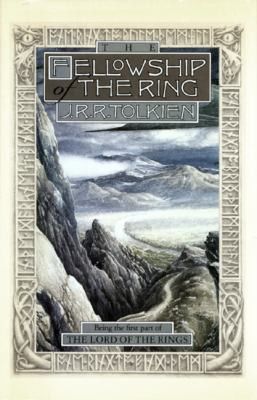The Lord of The Rings by J.R.R. Tolkien
Tolkien is arguably the grandfather of all modern-day fantasy fiction and Lord of the Rings his best-known work. I read The Hobbit as a child and like many others enjoyed the epic movies released in cinemas during the 90s. Now this winter season, I have returned to reread this classic, detailed tale of the eternal battle between good and evil.
Fans of Tolkien will know something about his history. After surviving World War I, including a service record encompassing the Battle of the Somme, Tolkien eventually made it home to England and became a Professor of Anglo Saxon and English Language and Literature at the University of Oxford.
Tolkien’s love of language and indeed his creation of new languages have been a lifelong fascination for me and other fans of high fantasy novels. As a bit of a ‘fan girl’ I have retraced his and the other Inklings steps back to a highly respectable establishment called The Eagle and Child, where Tolkien and C.S Lewis with others used to meet to discuss matters of a literary nature.
The Lord of the Rings showcases Tolkien’s creative genius as it shows a highly creative mind at work; the high fantasy novel is studded with elvish languages, runes, riddles and many, many whimsical songs that create a depth of feeling and joy in the written word, seldom found in literature.
I have returned to The Hobbit several times in my life and have memorised Bilbo and Gollum’s riddles and so can reel them off by heart. But I never achieved that level of familiarity with The Lord of the Rings. Rereading this monolith of literature has enabled me to identify where many other modern authors may have found some inspiration and as a more mature reader I am better equipped with the stamina for a longer, detailed read.
Tolkien’s literary world, complete with its maps of The Shire and the journey leading to the fearful vision of Mordor and Mount Doom epitomises the ultimate challenge faced by an unlikely hero - Frodo (following in Bilbo’s footsteps) taking on the powers of darkness with only a few faithful companions on which to lean. Tolkien’s descriptions of the elvish folk including descriptions of the beauty of Arwen and the other elvish folk, the dark riders following Frodo and the descriptions of the trek up Mt Doom are a more modern-day equivalent of perhaps The Odyssey or similar classical literature which relies on tales of quest and daring to enthral its readers.
Tolkien’s overall message that light can overcome darkness is an important beacon of hope in such troubled times and an important reminder that difficult times can be endured with friendship and the belief that good can overcome evil. In 2025 this message is doubly welcome as is the distraction that an epic fantasy tome provides.
If anyone needs me, I will be tucked up in my hobbit hole, with my family, second breakfast and cheese within easy reach. Successfully pushing the stresses of twenty first century living away with Tolkien’s help.
Lord of The Rings by J.R.R. Tolkien
Jenny


